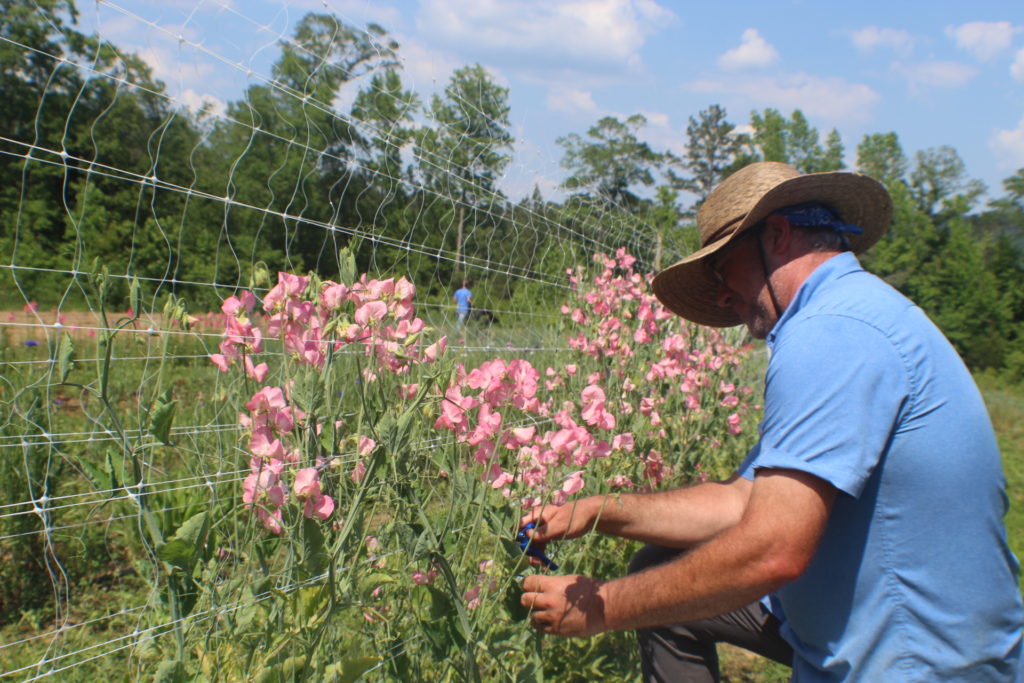Alabama Flower Farmers Blossom During Global Flower Shortage

By Aisling Fields
Sweet Grown Alabama Intern
With inclement weather and effects of the COVID-19 pandemic causing a global flower shortage, Alabama flower farmers are well-positioned to bloom, blossom and benefit.
“Cold snaps and hailstorms all over the world affected many flower farms,” said Camron King, CEO and ambassador of Certified American Grown Flowers. “Mixed with the effects of the pandemic, it’s a perfect storm for the international cut flower market. It’s also a great opportunity for local flower farmers to sell their goods.”
Eighty-two percent of cut flowers in the U.S. are grown internationally — primarily in South America and Europe. Hailstorms in South America damaged much of the continent’s cut flower supply, including nearly all hydrangea and rose crops.
Labor shortages created a bevy of problems.
“Many farmers chose to plant fewer bulbs for this year because they were unsure of what the demand would be and if they could get people in the fields to harvest the flowers,” King said. “In Europe, especially during lockdown, people could not cross country lines to get to work on these farms.”
Farms that could grow and harvest a crop were unable to sell internationally because of flight cancellations (cut flowers are transported on passenger flights). Demand for fresh-cut flowers also increased during the pandemic, as loved ones sent arrangements to each other during lockdown.
Sweet Grown Alabama flower farmers stepped up to the plate to provide colorful, fresh bouquets and arrangements to consumers.
“When you buy local, your flowers are most likely cut 24-48 hours before they show up at your door,” said Allison Creel of Blue Rooster Farms, a cut-flower operation near Birmingham.
It’s a stark contrast to imported flowers, which arrive at the florist or retailer a week after cutting, King said. Many florists have begun sourcing blooms from farmers like Creel — a boon to farmers and consumers.
“When you buy local, you know exactly where your flowers are coming from,” Creel said. “When Alabama consumers purchase Alabama flowers, it ensures farms like ours can continue growing these products for years to come.”
Buying local is also better for the environment, said Sweet Grown Alabama Director Ellie Watson. Transportation accounts for 29% of greenhouse gas emissions, which are reduced by local purchases.
“Buying local is a great way to shorten your supply chain,” Watson said. “When you buy a product from down the road instead of across the ocean, you directly contribute to a more sustainable world by reducing fuel emissions.”
Find fresh-cut flower farms and other products at SweetGrownAlabama.org.
